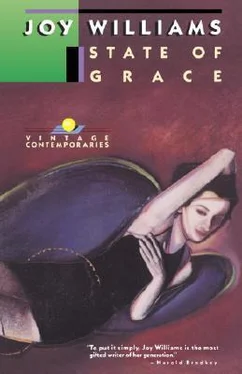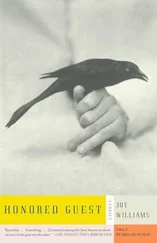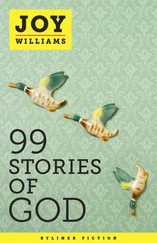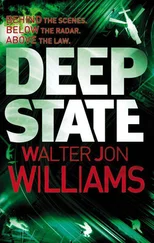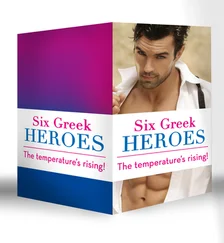Darryl drops the funnies in the paper plate of food he’s eating from and my man Ruttkin’s face turns gray as a sheep on the spot.
No one makes a sound and no one moves except the surfers who back their shanks deeper into the bucket seats. They stare and look adventurous, as though they’d been brave, squinting and hunching their shoulders like gangsters. I would like to say a few words or make a noise of some sort, a cough, hiss or clap, but something seems to jam me up. The thing slips membranous over my head and my mouth fills up with air. It is too late, it is ritualized. The moment turns from chance to rite and the four deputies are together now, for Darryl has run from behind the desk. He has an enormous torso but tiny sick legs and there is a stain on the fly of his pants. But they are all together now and circling the black man who still looks distant and bemused, who swings lightly the guilty pillowcase. He isn’t even watching them — he is an audience like me, watching this in some far-off balcony — and they walk around him in a tight circle, walking faster and faster and I think perhaps that they might turn to butter like the tigers did and we will sit down to stacks of pancakes. We will swallow them up and later void them in the scrubbed latrine, over the scented bulb that is wired to the bowl, and flush them into the holes beneath the town … I smell a small smell of whiskey now and flame and the black man smiles and gives a happy growl.
“Mother,” he says.
And the deputies fall on him, softly and without noise like dogs on a barnyard duck. There’s a dull splash and smack and the man’s ear begins to bleed, the pillowcase slides across the floor and out of it falls a clock,
a comb
and a can of pears.
I can’t even see their hands moving, they’re jammed so close, but I see the two white sneakers planted in the thicket of professional country blue and Tinker’s thighs churning up and down as though he’s peddling a bicycle. I tell you, I can’t feel a thing. I’m a wastebasket, and if you were honest, you’d admit it too.
PHOENIX, ARIZ. (AP)
A collision with a horse as he drove home from the race track left L. J. Durousseau, the nation’s leading jockey, in critical condition today.
Deputies said the horse bolted into the path of Durousseau’s car during a rain storm. He swerved sharply, according to authorities, but was unable to miss the animal.
I am reading the newspaper and I start to cry. They have taken the man away now. His face was red, sealed and shimmering as though with the cellophane on a box of Valentine candy. The surfers are gone too, leaving a puddle of sea water behind them. Across the room are small signs. A piece of tooth flew through the air and struck my hair, I thought, but I have not been able to find it. And the tiles seemed trampled and discolored where they beat him, but I know that this is just a function of the surface of my eye.
The deputies have sent out for french fries and 7-Ups and I am crying on the newspaper sports section. I have not cried for so long, for so many years, that there seems something wrong with the way I am doing it. I used to think that loving and breathing and crying were things that you never lost the method of but this is just not so. There is nothing that cannot be forgotten and learned in a different way or never learned again.
Ruttkin, too, seems to think that I am not crying but am in the process of something else. He stands beside me and runs the tip of his finger around the neck of my sweater, picks up my wrists and regards my dirty ankles. He has learned this maybe by heeding Dick Tracy’s Crimestopper Notebook. He is looking for a chain, a disc, a tag.
“You ain’t an epileptic? You ain’t a diabetic?” Ruttkin is relaxed. On his knuckles are teeth marks. His shirt is wet where the black man has drooled. “The hospital,” he says, “says there ain’t a bit of change. You aren’t wanting to go over there, are you? If you want, I’ll take you but I’ll tell you about them hospitals, they don’t tell you a thing. You ask and they answer something that don’t make sense. Or they answer you something you never asked.”
I flap my hand vaguely at him. I want nothing in common with this man who is happy as though after a meal, who is showing his teeth at me in a commiserating grimace. I feel uneasily that his discoveries are the same as mine, that the methods he has chosen to get through the days, the weeks and into the years that he can put behind him are no different from my methods. The result’s the same — we trample people in the eagerness to get on with our dying. Yes. I know what he says is true. I cross my legs and kick him in the knee, still crying. He crazily apologizes. I don’t quite understand your question but whatever it is the answer is no . Yes. That’s the attitude. That’s the way of this world. The answers are all to something you’ve never even asked. Now Grady balked at this. Like some, he was more fortunate than most. When he wanted to know how to tune an engine, there were instructions for doing it. When he was young and wanted to shoot and sight and track, there were rules for that too and all he had to do was listen and learn them. He grew up trusting in the sanctity of the right reply. He was confident and hopeful and bright. And not without imagination. And honor. For when he found that I was going to have a baby, he kissed me gravely and married me in the afternoon. The ring was made of wood and too large for me. I packed blue tissue beneath it to keep it on my finger and when the tissue rotted, the ring fell away. I don’t know when but now it’s gone. Grady wouldn’t mind. He traced my thighs and the sockets of my eyes, he was so in love.
Every girl remembers her wedding day. Excuse me … I have a cold and my tongue is green from flavored throat lozenges. It is raining, the sky is almost black. There may be a tornado. As I run from the car, I slip on wet pine needles and fall, catching my hand on the barbed wire fence that separates the chapel from a field. It is auspicious for my hand doesn’t bleed. It lies snagged there as Grady helps me up but there is no blood and Grady laughs and kisses it and folds it up gently in his own hand. Gently, as though the hand had been severed, the ring, the marrying hand, and he were saving it, gently as though it were a wounded bird. There are big friendly mules in the field behind the fence and beside the chapel is the preacher’s pickup truck with a brace of shotguns hanging in the window rack. For everyone is a hunter here, even the meek; everyone is prepared here for something terrible coming out of the black hot southern afternoon that they will have to protect themselves against.
Yes, every girl remembers, but as for the ceremony itself … The words, I suppose, would be the same that Father used although Father would first teach that loving is good preparation for dying. I was the only one who learned this. Everyone else seemed uncomfortable at the thought. Perhaps they believed that loving was what made a happy life. And I often wonder what became of those who Father blessed …?
My eyes are breaking from this crying. Poor jockey Durousseau. I cry and cry. I sizzle and choke. A long time before this, in the time when I wept, I cried never for grief but from frustration. That had a pattern to it, a rise and fall, a stretch and slack, an end in sight, but this crying now can go on forever, like this day that goes on into continuing night. The land revenges itself upon us all, for I passed through that time as though through a dream, with no knowledge in my flesh of snowfall or handstroke, knowing nothing but dreaming those days in my head.
… We are going out for dinner. The Jaguar moves like a ghost through the dusk. A graven image, a negative, and us inside, leaning into the turns. Grady, my young man, all blond like wheat, takes the corner and falls out of love with me … love in his watchtower darkling and in ambush is stretching his deadly bow .
Читать дальше
